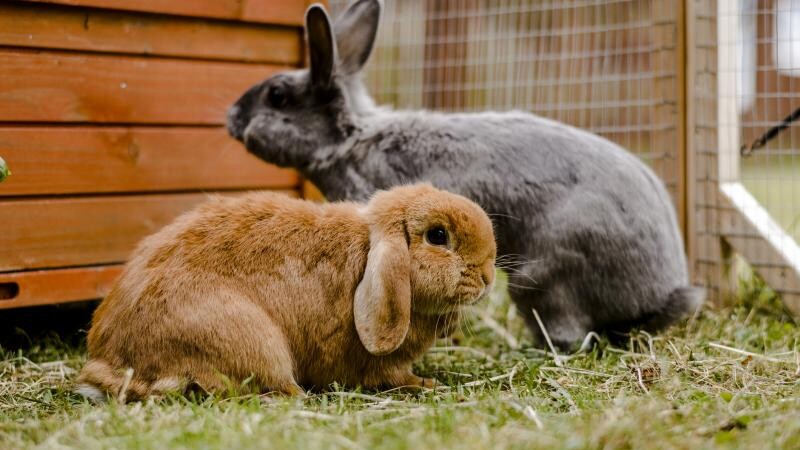

Neutering a male rabbit means removing its testes, while the equivalent procedure in a female is called spaying – the removal of the reproductive organs. Either way, it is a routine procedure that your vet can perform. Not only does it stop your rabbit breeding, it can also help them live a longer, healthier life with a reduced risk of cancer and calmer relationships with other rabbits. All rabbits not used for breeding should be neutered; rabbits should always be kept with at least one rabbit companion and, even in same-sex pairs, neutering is a vital part of a forming a loving and sustainable bond.
The benefits of neutering your rabbit are seen both for your rabbits and for you.
No risk of pregnancy. Pregnancy is a difficult time, and rabbits do not get the emotional reward we may from reproducing. Rabbits can have multiple litters per year, and pregnancy and birth both carry risks to both your rabbit and the kittens.
Improves socialisation. Rabbits need companionship, and a human is not enough, imagine not having any friends who speak your language. Neutering both is really important, as male-female pairings generally work best socially.
Less risk of cancer. Sadly, female rabbits are very likely to develop uterine (womb) cancers relatively early in life. They can also develop womb infections, or other cancers such as mammary (breast tissue) cancer. Neutering when young greatly reduces the chances of these occurring.
Better temper. Neutered rabbits are less temperamental and generally easier to handle, which is especially important if you have children.
Better house training. Neutered rabbits are much less likely to exhibit these marking behaviours
Remove risk of false pregnancies. Unneutered female rabbits often develop false pregnancies, which can cause very hormonal behaviour such as aggression towards their owners or other rabbits.
 Contact Jaguza Support
Contact Jaguza Support